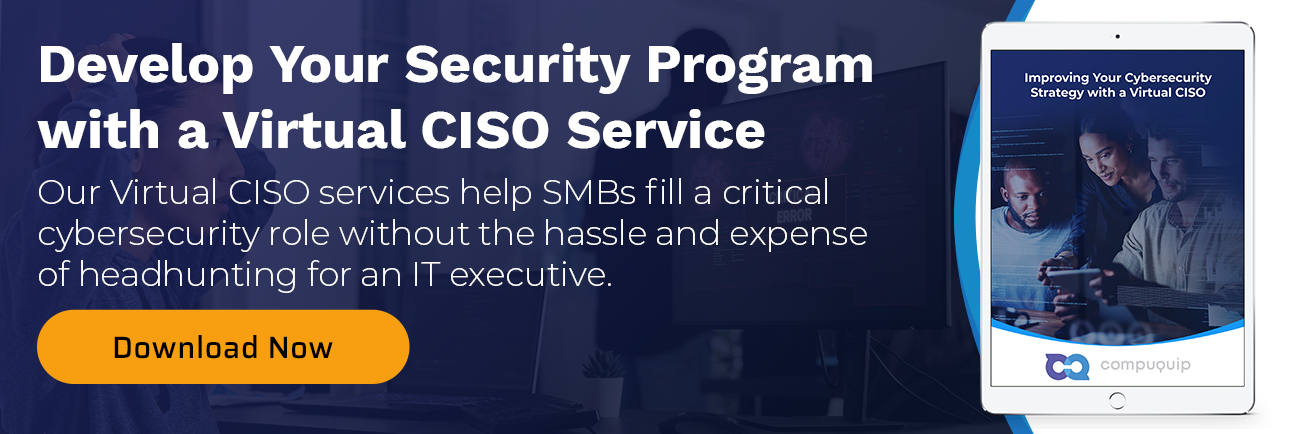How to Choose the Best GRC Tools for Your Enterprise
A recent study anticipates that there will be 55.7 billion connected devices by 2025, of which 75% will be connected to the Internet of Things (IoT). From this perspective, there will soon be almost 56 billion devices that are at risk of cyber attacks or that hold vulnerabilities waiting to be exploited.
Of course, connected devices are just one component of your enterprise’s operations, but the point remains that significant measures need to be taken to protect your enterprise across multiple facets. One way to manage this is by implementing a GRC platform.
What Is a GRC Platform?

GRC stands for governance, risk, and compliance; a GRC platform entails all the various tools, protocols, and strategies that an enterprise might need to use as part of their approach to governance, risk management, and compliance with different standards.
Essentially, it serves as a streamlined amalgamation of enterprise objectives and IT strategies.
GRC platforms can be utilized to achieve these goals and objectives:
- Risk management
- Policy management
- Audit preparedness
- Compliance
- And more!
Frameworks that manage GRC might look different from one organization to the next, but the goal is the same: to have insight into operations, manage potential risks to security, and maintain compliance with regulations.
Overall, GRC platforms are vital to effectively manage data, combat and analyze risks, and follow necessary requirements for different industry standards.
How to Choose the Best GRC Tools for Your Enterprise
When it comes to implementing a GRC asset for your enterprise, be sure to evaluate these qualities:
Security
This might seem a little obvious, but if a product is meant to protect your assets and shield your vulnerabilities, then it needs to be secure and trustworthy.
A comprehensive GRC platform means you’ll have oversight into numerous facets of your enterprise’s security status, so this platform should confidently safeguard your network and assets.
Consider what security protocols the platform has to ensure top security—for example, are encryption and access management measures in place?
Do a little research to see if the hosting platform has ever been the victim of a security breach or data attack, and what they learned from that experience, if so.
Automation
Your GRC platform should be able to handle loads of data and analyze tremendous amounts of data quickly and offer real-time alerts when it finds something suspicious.
Automation continues to be an incredibly valuable quality for cybersecurity since it frees up human experts to focus on more important matters than tedious, repetitive tasks.
Choosing a GRC platform is no different; it shouldn’t be a burden on your internal IT team; it should be a significant asset that helps alleviate their work load.
Ease of Use
If you don’t know how to use something, then it’s essentially useless to you. A tool is only as effective as your ability to leverage it—and this is especially true of GRC platforms.
When you’re entrusting a platform to keep your enterprise’s assets safe and fortify its weaknesses, it’s critical that your team is able to operate the platform and manage it with ease.
In other words, it shouldn’t become an additional laborious task for your internal IT team to add to their plate. The point of utilizing a GRC platform is to centralize several components of your cybersecurity posture and effectively manage it, not for it to become another pain point for your team. Be sure to take advantage of a free demo or trial period when shopping around for a GRC platform.
Cost
The ROI on a GRC platform can be challenging to calculate when reviewing your cybersecurity budget because it won’t seem useful until something goes wrong and it triggers your team to take action. I
f you’re having trouble getting your team onboard for purchasing a GRC platform, then your most persuasive perspective might be to evaluate how much it might cost your enterprise to not have one in place.
Some of these costs might include:
- Cost of compliance violations
- Unchecked risk of data breaches
- Being unprepared for audits
Consider how beneficial a GRC platform would be for your enterprise and then weigh the cost of being without one against it.
Platform Support

When shopping for a GRC platform, be sure to ask how much support the platform will provide as part of your relationship. In the event that a feature is down or you need on-the-spot guidance to walk through a particular obstacle, how responsive will the platform be to help you out?
Ideally you’ll have direct access to live support as part of partnering with a GRC platform since this further adds to its advantages.
Partner with Compuquip to Support Your GRC Platform!
Even with a GRC platform, there are still countless risks and cybersecurity flaws to manage. If your enterprise’s internal IT team feels overloaded, then it might be time to consider partnering with Compuquip to provide vCISO support!
Virtual CISO services can provide a broad array of expertise in risk management—particularly from a cybersecurity perspective.
VCISO services leverage a team of experts to provide crucial insights into your enterprise’s cybersecurity posture. Additionally, they can help you optimize and manage the cybersecurity tools you need to mitigate risks and ensure compliance with strict industry standards.
Do you need help with the risk management portion of your governance, risk, and compliance framework? Reach out to Compuquip Cybersecurity and ask about our vCISO service today!

